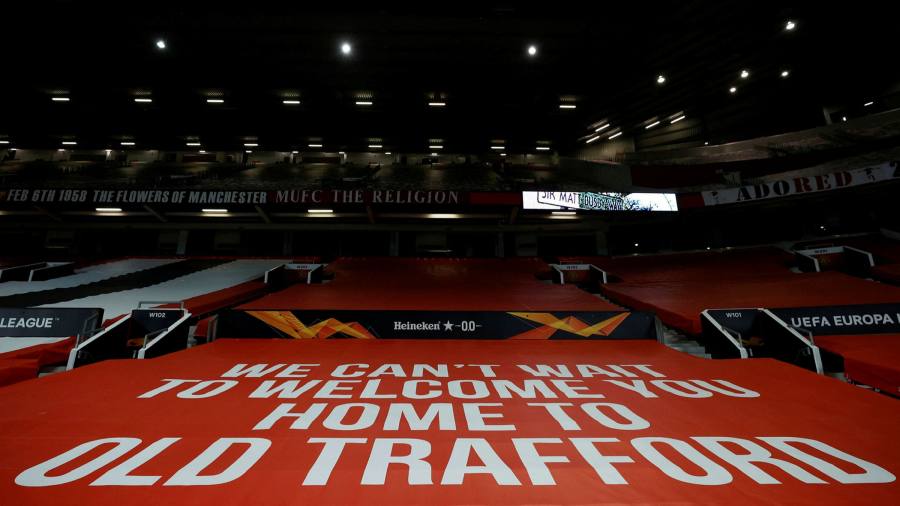Manchester United, the richest football club in England, recorded its first quarterly profit since before the coronavirus pandemic wiped out vital match day revenue.
The club’s efforts to recover from the debilitating effects of the virus are closely watched by rivals and investors in the sport, which continues to attract interest from private equity firms and wealthy individuals.
Net profit was £63.9m in the final three months of 2020, the club’s second fiscal quarter, up from £35m in the corresponding period a year earlier, as revenue increased 2.6 per cent to £172.8m.
Profits were also boosted by the sale of defender Chris Smalling to Roma, the driver of a £14m gain for United, which is owned by the US Glazer family.
Manchester United’s first quarterly profit since before the pandemic took hold in March 2020 was also made possible by the club’s return to the Uefa Champions League, Europe’s elite club tournament.
This boosted broadcasting revenue by £44m to more than £108m, even though the team was eliminated in the group stages. Failure to progress to the lucrative knockout rounds resulted in the team’s demotion to the Europa League, a less coveted competition.
European football, and the associated broadcasting revenues, have been crucial to the region’s top clubs, which are set to miss out on €2bn in revenue by the end of this season as a result of the pandemic, according to Deloitte.
Their predicament has invited capital from cash-rich investors, hunting for yield in a world of ultra-low interest rates.
Private equity firms have circled Serie A, the Italian league, while clubs have changed hands or attracted capital across Europe. This week, Club Brugge, leaders of the Belgian top flight, set out plans for an initial public offering on Euronext Brussels.
Despite those struggles in Europe, Manchester United in January climbed to the top of the Premier League, the richest domestic football competition in the world. However, a loss of form means that the team now occupies second position, 14 points behind local rivals Manchester City.
The main drag on revenues was a collapse in match day income — including the sale of tickets to matches at Old Trafford, the team’s 76,000 capacity stadium — because games have continued to take place behind closed doors.
Ed Woodward, executive vice-chairman, said the company was “hopeful” that crowds would return to full capacity next season, following the UK government’s plans to allow up to 10,000 fans to return to large stadiums from May this year.
“The return of our fans to Old Trafford, enabled by strong vaccine deployment in the UK and the easing of lockdown restrictions, is no doubt a light at the end of the tunnel in the near term,” he said.
The New York-listed company’s shares are trading at the highest levels in a year, but were down 3.6 per cent at $18.83 on Thursday.

